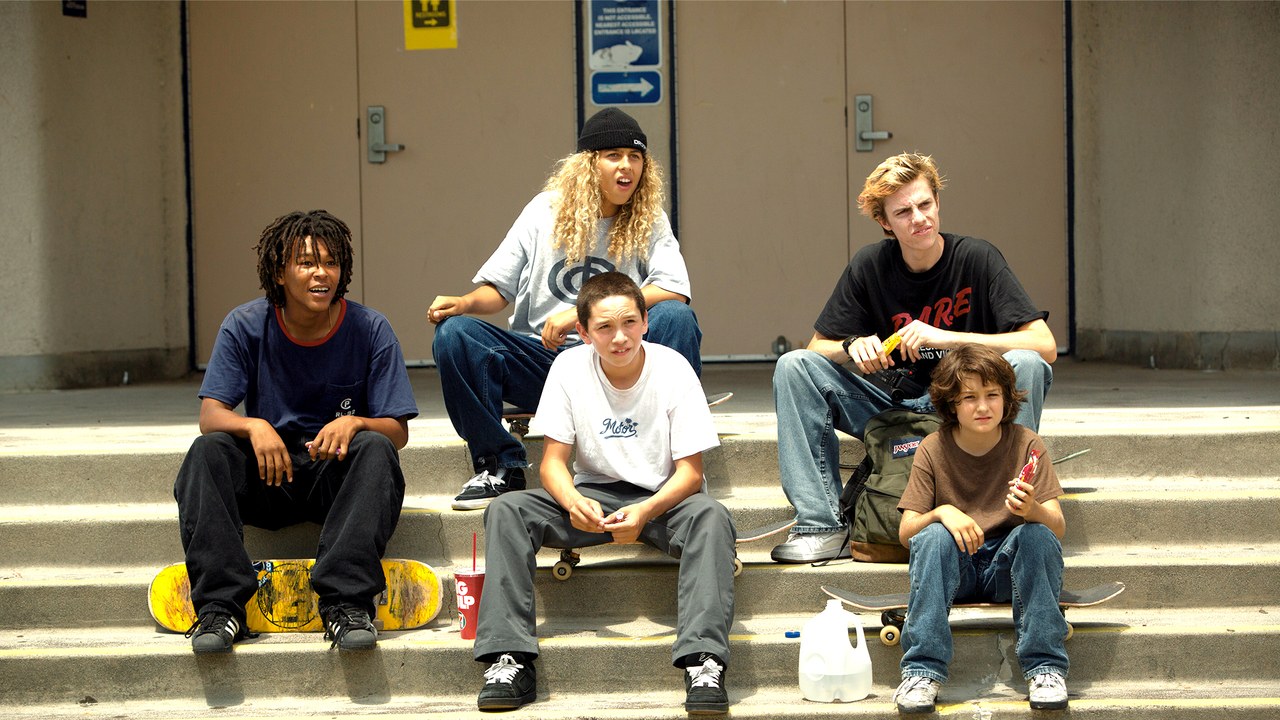With his directorial debut Mid90s, Jonah Hill returns to the coming of age film, the genre that propelled him into the eyes of Hollywood in the 2007 comedy Superbad.
Similarities can be found between the two films, most notably, they both have much more to offer than initially meets the eye. On the surface Superbad is a well-executed raunchy comedy about teens attempting to lose their virginities at a house party, whilst actually the film possesses a strong heart and the narrative is more invested in the bittersweet story of growing up and losing touch in a friendship. In the same way, Mid90s is about more than skateboarding, as Hill’s film depicts a young teen Stevie (Sunny Sulijic) finding his place in the world within a gang of skate hoodlums in the (you guessed it) mid 1990s. It takes place in the world of skate culture, and Hill is faithful and affectionate towards it, but the tale he is telling is not solely applicable to it, its been told before, largely because it is still so universal.
It echoes Shane Meadows This is England and more obviously Larry Clarks Kids, though its less socially and politically charged than the former and certainly less shocking and bleak than the latter, the film is totally charming and relatively low-key. Its plot is somewhat skeletal, and one of it’s most enjoyable aspects is its episodic nature, for most of the run time we are allowed to peek into the day-to- day activities of the group; skating around and bantering between one another, getting into trouble and going to house parties. Hill attempts to tie up narrative threads towards the back end into larger, more sobering moments and occasionally wobbles with the handling, but overall it’s a refreshingly basic and honest film.
The film aims to create a strong vibe over a finely detailed plot, which Hill manages to nail in a number of ways. The performances are great all round, Sunny Sulijic is excellent as the wide-eyed hero Stevie, the young, relatively inexperienced boys in the gang have a charming authenticity about them, and Katherine Waterson and Lucas Hedges are impressive as Stevie’s hard pressed mother and his volatile yet equally lost brother respectively. Cinematographer Christopher Blauvelt really adds to the tone by filming on 16mm in a 4:3 aspect ratio resulting in a suitably boxy, grainy, 90s look of hazy sunshine, washed out baggy blue jeans projected by naturalistic light.
This is all complimented by one of the film’s strongest attributes; its soundtrack. Not to be underestimated is the lovely score from Trent Reznor and Atticus Ross, rich in warm pianos which flow well between the sublime soundtrack, which understandably takes the limelight. Not for a long time has there been a film soundtrack crying out for a physical release as badly as Mid90s, Hill’s eclectic mix of period relevant hip-hop and alternative rock sets the mood of the picture, evoking the feeling of memory and nostalgia without being too on the nose. However, whilst the soundtrack is littered with great hip-hop cuts (Wu Tang Clan, A Tribe Called Quest, Cypress Hill) some of the highlights come from the incorporation of some unexpected cuts making for some memorable moments, such as the quick camera cuts to Herbie Hancock at a house party, Stevie rinsing his mouth rid of cigarette smoke whilst Bad Brains blare out, and Stevie and the groups leader Ray skating through the middle of busy traffic, in the shadow of a sunset dimming into night, to the sound of Morrissey.
In Mid90s, Jonah Hill has presented that whilst he still undoubtedly has more to learn, he certainly has impressed in numerous departments; writing and directing his own script, obtaining some strong performances from a largely young cast and doing a good job toeing the right side of the fine line between warmly nostalgic and lazy rose tinted retrospection.

